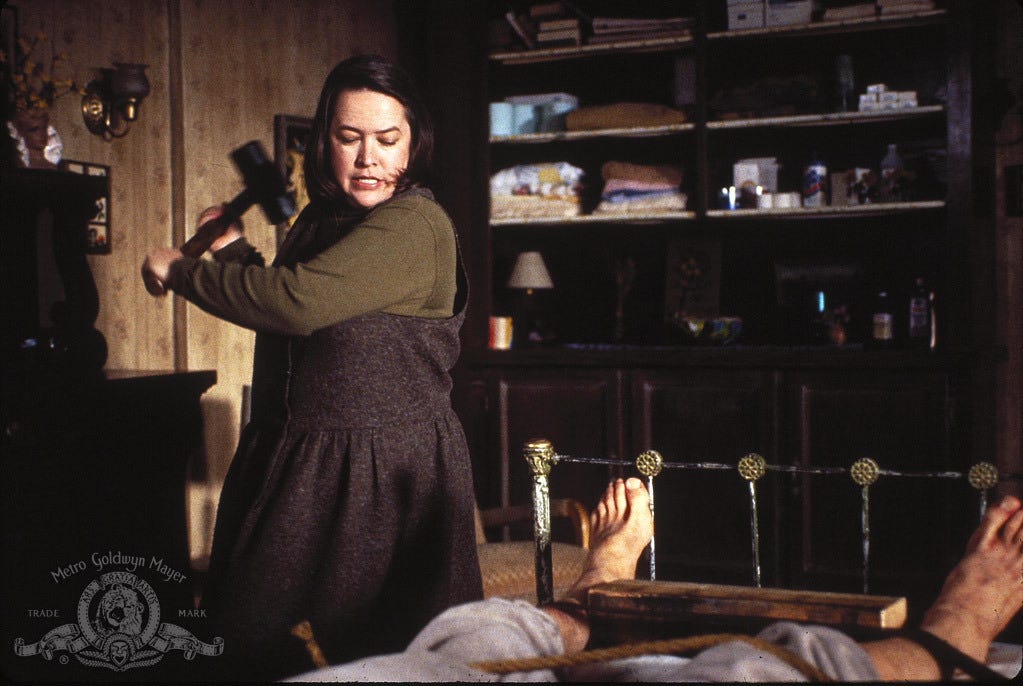The word “accountability” is omnipresent in writing advice. It’s often cited as one of the top reasons to join a writing group or sign up for a class. There are plenty of blogs about how to create accountability via charts or software. And, most strikingly to me, every single coaching client I’ve had so far has mentioned it in our opening conversation at least once.
I understand this. I’ve felt it myself. But lately I find myself wanting to push back on this word. What is it we want, when we want “accountability”? And what assumptions are we making about writing, and about ourselves, when we use it?
To start with the obvious: most writers working on long projects have had the feeling of accomplishing less than we want to in a day, a month, a year. We are inclined to chalk this up to a lack of motivation. If we were only accountable to someone, we would be more likely to meet our goals, right? When someone’s watching, you get more done. It’s hard enough to do the dishes when you’re alone in your apartment. How are you supposed to do something as hard to sustain as writing a novel without someone cracking the whip? As any writer will tell you, Stephen King’s Misery is pure authorial wish-fulfillment. Who hasn’t thought, If only someone would chain me to a typewriter and stand over me with a sledgehammer until I finish?
Image: Annie Wilkes meting out punishment with a sledgehammer.
Accountability implies a potential punishment, even if it’s only shame.* From the Latin computare, “to count,” it means counting the money left in one’s care in front of someone else, to make sure none is missing. The word connotes responsibility, but also moral responsibility and legal liability; being made answerable for flaws, errors, crimes, and sins. It’s the language of puritanism, the language of capitalism, the language of surveillance.
It is also, for most of us, the language of recognition and validation. To be seen to have written, to have someone count our words and say, yes, you have done the work today, good job, feels incredibly good. It makes us feel real. For those of us who thrived on the external validation of good grades for 12 to 18 years of schooling, this feels comforting, familiar, stabilizing. 500 words a day? 2000? More? Omg, YOU GET AN A+!! You win at writing!
Only, writing isn’t school. In school, if you work hard (and have a lot of other luck and privilege on your side), you get an A. Enough A’s, and enough luck, and you graduate with a degree. But there is never a guaranteed outcome when you write a book. If you work hard and get lucky, you’ll almost certainly finish it. But will you get an agent? Maybe. A publisher? Don’t know! Readers? Eep. So, what do you do if you don’t get those things? You write another book.
Imagine getting all A’s for twelve years of school, and then at the end, you don’t graduate. Instead, they tell you to go back to kindergarten and start over. Maybe next time, you’ll get a diploma.
(And if you do get published, with a bestseller, I’m here to tell you that the answer is exactly the same. You write another book. And it’s just as hard to write as the first one, if not harder.)
Writing is not school. It’s not the same every day, nor should it be. You’re an adult; there will be ebbs and flows of energy, attention, and inspiration. Your health will fluctuate. Your dependents will get sick. Your job will be stressful. Your car will break down. You’ll need money, insurance, mental health breaks. You’ll age, grow, change. In the meantime, accountability can get you from page to page, report card to report card. But sooner or later life is going to intervene, and you’re going to get an F. What then?
Image: A woman swooning in horror. Abandoned, by James Tissot, 1882.
In my experience, most writers give up, not because they feel too pleased with themselves, but because they think they’re failing.
The language of accountability suggests that if left to our own devices, we will shirk, procrastinate, let ourselves off the hook. We will be lazy. Read the book Laziness Does Not Exist by Devon Price to learn more about where these myths come from. But in the meantime, ask yourself—what would it mean to embrace shirking? Lean into procrastination? Let ourselves off the hook—permanently?
I have a confession: deadlines haven’t worked for me for some time, not in novel-writing. Maybe they’ll work again for me someday. But I am not convinced they are worth the trade-off.
***
“Accountability” is based on fear—the fear of failure. Fear is an excellent short-term motivator. It helps us survive dangerous situations. When you’re flooded with adrenaline you can run farther, think faster, lift cars off children, leap buildings in a single bound, etc. In works great for cramming, writing all-night papers, giving presentations, and other short-term accomplishments. But it’s not great for cementing learning, and it wears you out, and, most horrifyingly of all, it leaves your brain worse off than it was before. Lots of studies have shown that trauma has negative effects on cognition. Per one study of the cognitive effects of PTSD:
Stress and anxiety serve the important functions of preparing an individual to meet the demands of everyday life and increasing the chance for survival. It is therefore not surprising that arousing and emotionally salient stimuli readily capture attention and have a powerful influence on how information is processed, encoded, stored, and retrieved. However, extreme levels of stress can have a devastating effect on healthy functioning….. disruptive memories and nightmares, avoidance of reminders of the event, and hypervigilance toward potential threats in the environment. These hallmark symptoms involve alterations to cognitive processes such as memory, attention, planning, and problem solving, underscoring the impact that emotion has on cognitive functioning.
I’m not saying that ordinary accountability, as writers use it, causes PTSD—although it certainly can! And I am not against using any productivity measure that makes you feel good in the moment, gets you through the day, gives you a sense of accomplishment. I’m just saying, there are more and better tools.
Accountability is not the only human interaction that can give us the feeling of being recognized and validated. There’s also support, encouragement, company, fellowship, tea, commiseration, gossip, shop talk, brainstorming, TREATS (omg treats), gentleness, joy, knowledge-sharing, field trips, compliments on your shoes, karaoke, drawing small animals. Carrots work better than sticks; cake works better than carrots. I have gotten through writer’s block by window shopping online for vintage vests, reading comic books, and watching horror movies.
Image: A fancy cake from Sofia Coppola’s Marie Antoinette.
It’s worth remembering that in Misery, Paul Sheldon finishes his novel, but he loses a foot in the process. Is a book worth a (metaphorical) foot? Unless it’s going to literally save your life, I’m going to say no. And who knows? Maybe he had a better book in him that didn’t require him to be so miserable.
*To be clear, accountability when there is true culpability is 100% a good and necessary thing! A low word count is not, however, a crime.







I love this so much. Ugh why do we always feel we need to submit ourselves to Puritan measures and methods to get results???
It feels like one of the tricky things about subjective work like art and writing is there just isn’t a universal standard for progress or completion.
Sometimes taking an artist’s date or a week off actually is the way to make progress. And that’s unlike our industrial model for something objective like making a car, where there really is a clear map for what progress is and what completion is.